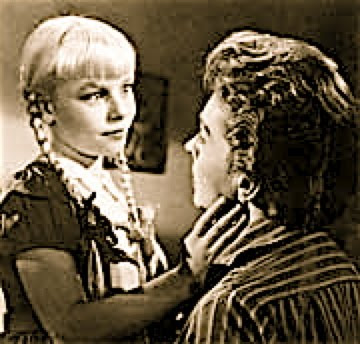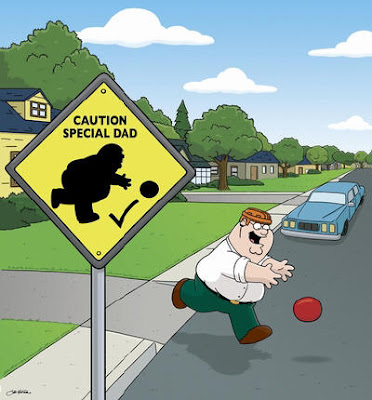
It's been 150 years since Charles Darwin wrote On the Origin of Species. There is, I hear, a re-release of Darwin's classic, including a brand spankin' new introduction co-written by the star of the switcheroo flick Like Father, Like Son, and Growing Pains, MEGACHRISTIAN Kirk Cameron.
Apparently, Darwin's book is in the public domain, so anyone can write a version of it if they want. Kirk says that he's doing a new intro with the intention of presenting a balanced view of Darwin's work. Apparently a "balanced" view means saying 'this book is bullshit' in an introduction.
Ok, so he wouldn't say "bullshit".
When I was a bit younger and a church-goin' person, I fell victim to just about the worst thing that could happen to a God-fearin' fella. I was sitting in church one sunday morning, thumbing through my Bible (I think the sermon had to do with something in Luke), when I experienced only what I can call a "reverse revelation".
It was at that moment when I suddenly stopped believing in God.
I can't explain it any other way than to say that it was sudden, like a bolt of lightening from the heavens. Really, at that moment I felt like it must have felt for Saul on the road to Damascus, except for the fact that I was suddenly an atheist. Sitting in church, no less.
I didn't feel too bad about it, though. While I was sitting there (beacuse it would have been rude to just get up and leave during a sermon), things became clearer and I finally understood. The heavy load of doubt had been lifted. I no longer felt the gulit of wrestling with my doubt because it had been revealed to me that the thing that I doubted did not exist. It was like God did me a little favor in whispering in my ear, "I'm going to tell you something, but don't tell anyone else here. I don't exist".
I thought that I should have been feeling something about not believing... guilt, worry, a sense that I was doomed to hell... nope. Nothing. I didn't feel bad about it at all. That morning while I was sitting there, receiving the most amazing news that I could have ever received in my life was the most singular moment of clarity that I had ever felt the entire time that I had even gone to church. All these years later, I still feel the same.
When it first happened, I thought that the problem might have been the church that I was going to. But each time I went to another one, the feeling was the same. I had even tried dabbling into "alternative" religious practices (yes, including Wicca, and no, it had nothing to do with that movie The Craft. But given my size and gender, Wicca would seem a natural choice). As if I were hit by the backhand of God, God said to me, "why are you insisting on doing this to yourself? I don't exist!!" I finally had to admit to myself what I already knew.
I was an atheist.
The funny thing is, is when you make the discovery of your non-believingness, none but the most millitant atheist wants to admit that that's what they are. Many of us cling to the badge "agnostic", believing that it's better to "keep our options open", than to say that we flat-out don't believe that there is a God. It's better to say that one is non-practicing than to say that one is non-believing. Eventually, however, the charade catches up with us when we realize that we aren't aganostic at all, that it's not a matter of not believing that no major religion has got it on what God is, but a matter of the fact that we believe that there is no omnicompetent being that occupies any role in the galaxy (I decided to use a definite description instead of saying that "God does not exist" for some positivist-leaning butthead saying that I've made a negative existential claim, which is something that I cannot do). Still, after many years I hadn't given up the hope of eventually believing in something. The idea of having no belief seemed like being lost, or worse yet, it smacked of disingenuity. The accusation towards many atheists is that we actually do believe in God, we're just acting out. It's not wanting to believe in God that the atheist is guilty of, not actually not believing in God.
But I knew what I felt. I felt that He did not exist. I had tried to get back the feeling that he did but failed. I had drifted from Christendom into agnosticism, theism, deism, and finally tried my hand at paganism. It was toolate for Pascal's wager and I was too disillusioned to take Kierkegaard's "leap of faith". But something still nagged at my, dare I say, soul. It wasn't long before I found myself with a copy of the Satanic Bible in my hands. I don't think that the average misanthropic teen escapes high school without at least one encounter with the late Anton LaVey's paean to the Dark Prince.
For those who are unfamiliar with LaVey's tome to the Devil, the Satanic Bible includes the Nine Satanic Statements, the 9th of which reads: "Satan has been the best friend the church has ever had, as he has kept it in business all these years!" LaVey says that, while in his youth, he worked at a carnival, and on Saturday nights he would see the men leering at the young nubile dancers. The same men, who when they returned to the carnival grounds the next morning for the tent services, would stand next to their wives and children singing hymns to God. He saw the hypocrisy of the men who indulged their flesh on Saturday night and then begged for forgiveness on Sunday morning. LaVey says that he saw how the devil was used to manipulate people into believing that all things physical were inherently evil. But as he saw it, wanting physical pleasure comes natural to people, so how can what is natural be sinful?
After reading LaVey's book, I didn't come away an atheist (namely because LaVey's "satanism" is more akin to secular humanism than actual diabolism. So one conceivably, can be a Satanic atheist), but I did see one big point to consider: namely, that LaVey's Ninth Satanic Statement works in reverse.
It's easy to say that God has been the atheist's (humanist, satanist) best friend for all these yers, as he is the one that they've been railing about for all this time!
*although I know at this point that the Wiccans would say that since their religion has nothing to do with the Christian God, that he is not their best friend. If you don't believe this, just cruise on up to your local Wiccan and tell her (because it will almost always be a her) that Wiccans are like devil worshippers. If you don't know how to spot a Wiccan, just look for the "goddess" sized young lady with the flowing hair (she'll most likely look like a heavier-set Tori Amos) and the gossamer dress if Wiccans worship the devil. Sit back and get ready to hear about the 3-fold rule and the "burning times".
After reading Christopher Hitchens' god is not great, Richard Dawkins' The God Delusion, Julian Baggini's Atheism: A Very Short Introduction, Russell's "Why I Am Not A Christian", and a handful of stuff by Michael Shermer, I realized that while I may be an atheist, I am a very Christian atheist. I realize that an atheist is only an atheist if he does not believe that there is no god. So far as our culture is concerned, that god that I maintain does not exist, is a Christian one. And like Christopher Hitchens, the god that I believe does not exist is not only Christian, but decidedly Protestant as well. I quote Hitchens, "I know enough about all religions to know that I would always be an infidel at all times and in all places, but my particular atheism is a Protestant atheism". As a product of the Protestant tradition, my atheistic values tend to echo exactly what I learned in Sunday school. I shouldn't kill or steal, or bear false witness. I believe that hard work will be rewarded, and that if one has a relationship with god, it is a personal one... And that the Pope is a sham. I cannot escape my Christian values even if I try to leave them behind. I find myself quoting Jesus on the subject of taxes or who we should treat the poor (heck, I even found myself referring to the feeding of the multitude when discussing health care). I still celebrate Christmas and prefer to hear traditional christmas hymns to the contemporary Christmas jingles by Michael Bolton or Boyz to Men (although I do like Paul McCartney's "Wonderful Christmastime"). I say "bless you" when someone sneezes, and I still write the word God with a capital G. And unlike Richard Dawkins, I wholeheartedly disagree that raising children in a religion is the same as child abuse. I always say that my hypothetical children are Christians. They gotta get their morals from somewhere, right?
We are all influenced, in one way or another, by the dominant culture. And whether I like it or not, I live in a Christian dominated/influenced culture. I can choose whether I accept the fact and move on, or whether I waste time protesting putting up "happy holidays" signs at Target. This is why I am, as I tell my friends, the most Christian atheist I know.
Although I find those who believe in God a little delusional, I understand that I can't be rid of him. I may say that I know that he doesn't exist, but there is a world out there full of people who believe that he does. And so far, I'm outnumbered billions to one. Nietzsche may have been correct when he wrote that God is dead, but like Elvis, there are still a whole hell of alot of people out there who go around singing his songs.








